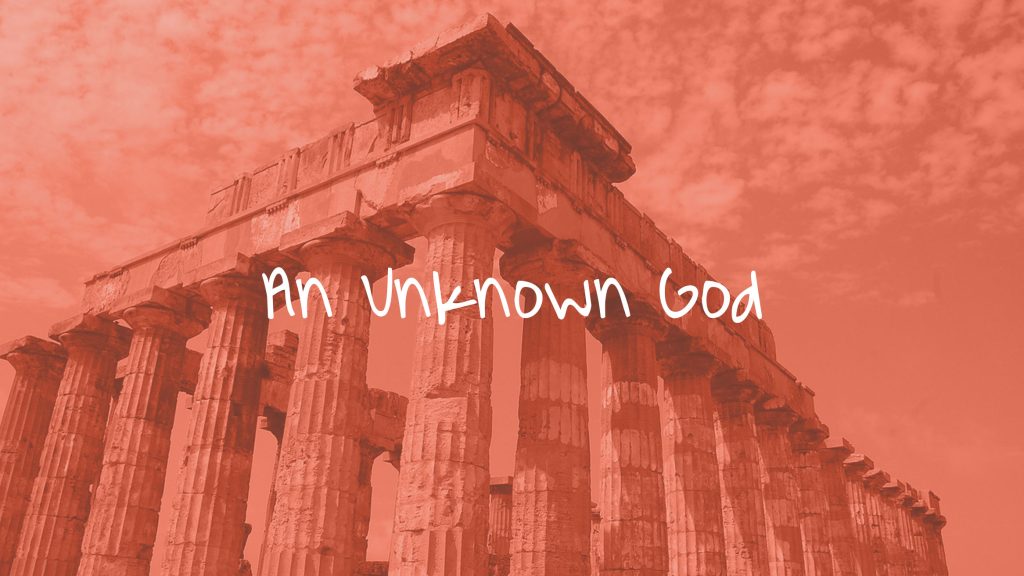|
Getting your Trinity Audio player ready...
|
So Paul, standing in the midst of the Areopagus, said: “Men of Athens, I perceive that in every way you are very religious. For as I passed along and observed the objects of your worship, I found also an altar with this inscription: ‘To the unknown god.’ What therefore you worship as unknown, this I proclaim to you (Acts 17:22-23, ESV).
Every country and culture has had a god. There has never been an indigenous atheistic country, and every communistic country attempting to foster the politics of atheism artificially failed or is failing miserably.
It’s hard to define this god, though.
When the Apostle Paul visited Athens, he realized the Athenians had an altar for an “unknown god.”
Paul saw an opportunity.
The origin of the “unknown god” mentioned in Acts 17 happened when a plague ravaged Athens hundreds of years before Paul’s visit.
At the time of the plague, Athenians worshipped hundreds of gods. It was said that every time a mason went to a quarry, he came back with a block of marble to make another altar for a new god.
But none of the hundreds of gods were helping with the plague.
A wise man then suggested that sheep be released in a lush field where they should graze all day. If a sheep did lie down, that place was marked, and an altar was built for an ensuing sacrifice to an “unknown god” who could possibly help with the disease.
After the sacrifices, the plague diminished, so the Athenians kept one of the altars to an “unknown god” as a sort of just-in-case-god insurance.
It’s hard to define our God without His help. So, Paul continued his sermon about an “unknown god” by defining and explaining the Living God. Paul says . . .
He is the God who made the world and everything in it. Since he is Lord of heaven and earth, he doesn’t live in man-made temples, and human hands can’t serve his needs — for he has no needs (Acts 17:24-25, NLT).
Note: The God that Paul knows doesn’t live in man-made temples! Nor can we put Him in a box of our convenience today.
Then Paul preached . . .
God overlooked people’s ignorance about these things in earlier times, but now he commands everyone everywhere to repent of their sins and turn to him (Acts 17:30, NLT).
HHHHMMMHHM . . . repentance — perhaps the Athenians and those living today would rather stick with the “unknown god.”
Paul continues . . .
For he has set a day for judging the world with justice by the man he has appointed, and he proved to everyone who this is by raising him from the dead (Acts 17:31, NLT).
No one gets to define God except God, and He is coming back — with every person in history standing before Him in judgment.
When I am before God on Judgment Day – I’ll be glad I know Jesus.
How about you?

